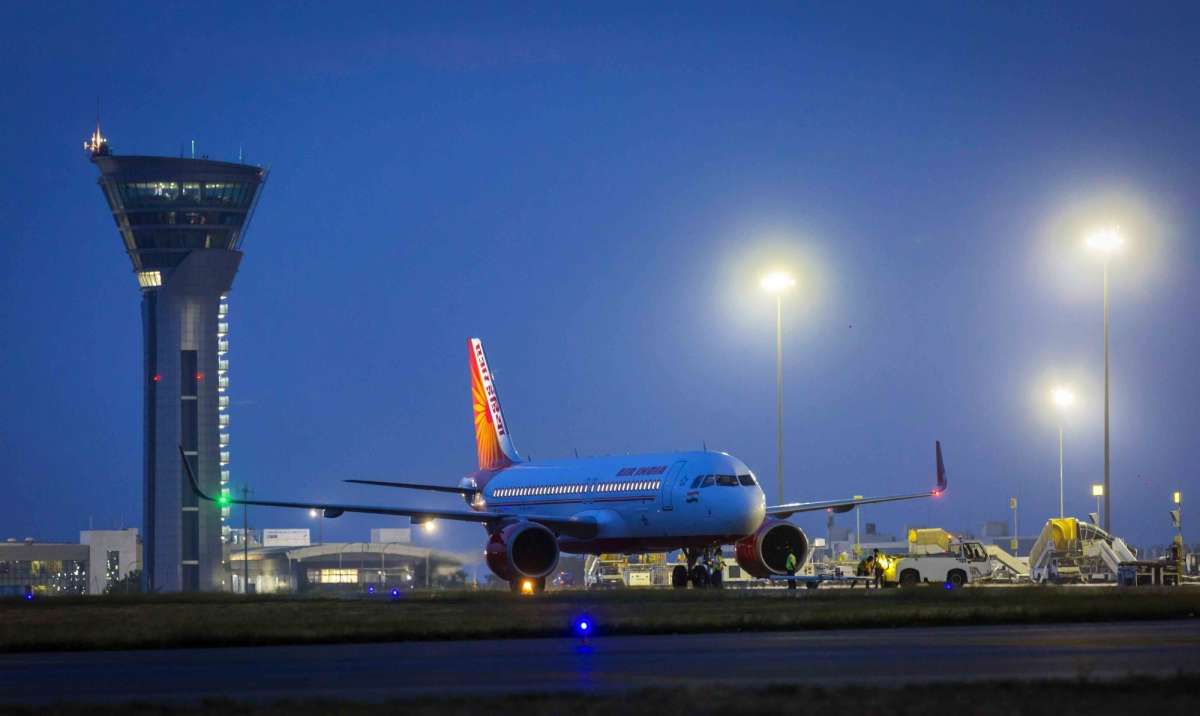India has not accorded recognition to the Taliban government but has been providing humanitarian assistance…reports Asian Lite News
The Afghan Ministry of Industry and Commerce (MoIC) said that it has signed a new Air Corridor Agreement with India to enable air trade between the two countries.
Trade between the two South Asian neighbours had come to a standstill after the Taliban fighters took over Afghanistan in August 2021 following withdrawal by the American and NATO troops.
Afghan news agency Ariana News quoted MoIC spokesperson Abdul Salam Jawad as saying that export of “Afghanistan’s commercial commodities to India continues through Wagah port and that in the past year, the country has exported more than 14 billion afghanis via the port”. India is a big importer of saffron, dry fruits and asafoetida.
Jawad added that cargo flights between Afghanistan and India will increase exports of fresh and dry fruits, handicrafts and other commercial items, giving a boost to the Afghan economy.
Before the Taliban takeover, the two countries carried out trade through two air routes – Kabul-Delhi and also Kabul-Mumbai. The second route had been opened only in December 2017 for India to import fresh fruits and medicinal plants from Afghanistan. This was started after observing the success of the Kabul-Delhi route inaugurated by then Afghan president Ashraf Ghani in June-2017.
The cash-strapped Taliban government remains a pariah with international governments due to its resistance to include minorities and women in governance.
India has not accorded recognition to the Taliban government but has been providing humanitarian assistance in the form of food, vaccines and medicines. India has been routing its wheat through Pakistan and has also sent aid during natural calamities.
India ask US to unfreeze Afghanistan’s blocked assets
India along with 13 other countries has asked the US to unfreeze Afghanistan’s assets in order to help its economy that has collapsed since the Taliban takeover of Kabul last year.
The matter was discussed in the fourth meeting of ‘Moscow Format’ talks led by Russia last week. The US, however, did not participate in the talks and neither representatives of Taliban were present.
Apart from India and Russia, other countries which took part in the talks were China, Pakistan, Iran, Kazakhstan, Kyrgyzstan, Tajikistan, Turkmenistan and Uzbekistan. Representatives of Qatar, the UAE, Saudi Arabia and Türkiye were also present.
The participating countries also told the Taliban that establishing military infrastructure facilities of “third countries” in Afghanistan is “unacceptable”.
“Forces responsible for the 20-year military presence in Afghanistan should take on the main financial burden for the post-conflict reconstruction of the Afghan economy for the welfare and well-being of common Afghans without intervention in internal affairs of Afghanistan,” said a joint statement issued by the Russian Foreign Ministry.
It also said that “all sections of Afghan society have requested in common that the US unfreeze overseas assets and urged to take all necessary steps to release the blocked Afghan national reserves. Most of the delegations agreed to make a call to compensate for the damage caused to the Afghan people during the years of US – NATO presence.”
New Delhi was represented by J. P. Singh, Joint Secretary of Pakistan- Afghanistan-Iran division, Ministry of External Affairs. On the sidelines of the talks, Singh also held discussions with Special Envoys for Afghanistan of the participating countries.
The countries also asked the Taliban to not allow Afghanistan to “serve as a breeding ground, safe haven or source of proliferation for terrorism” and condemned the terror attacks targeting innocent civilians at public places, including educational institutes, and the recent attack at the Russian Embassy in Kabul.
“It was stressed that the placement of military infrastructure facilities of third countries in Afghanistan and in adjacent states is unacceptable,” the member countries said.
The Taliban, while expressing discontent for not being invited to the talks, “strongly urged” the attendees to not allow other countries to use their own land or air space against Afghanistan.
“We want to underscore that Islamic Emirate — just as it fought against the 20-year occupation posing a direct threat to the security and stability of Afghanistan and the region — as an independent government will not allow any third country to place military facilities in Afghanistan. Similarly, we strongly urge other countries to not put their land and airspace at the disposal of other countries against Afghanistan,” the Afghan Foreign Ministry said in a statement.

Leave a Reply